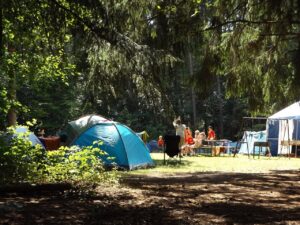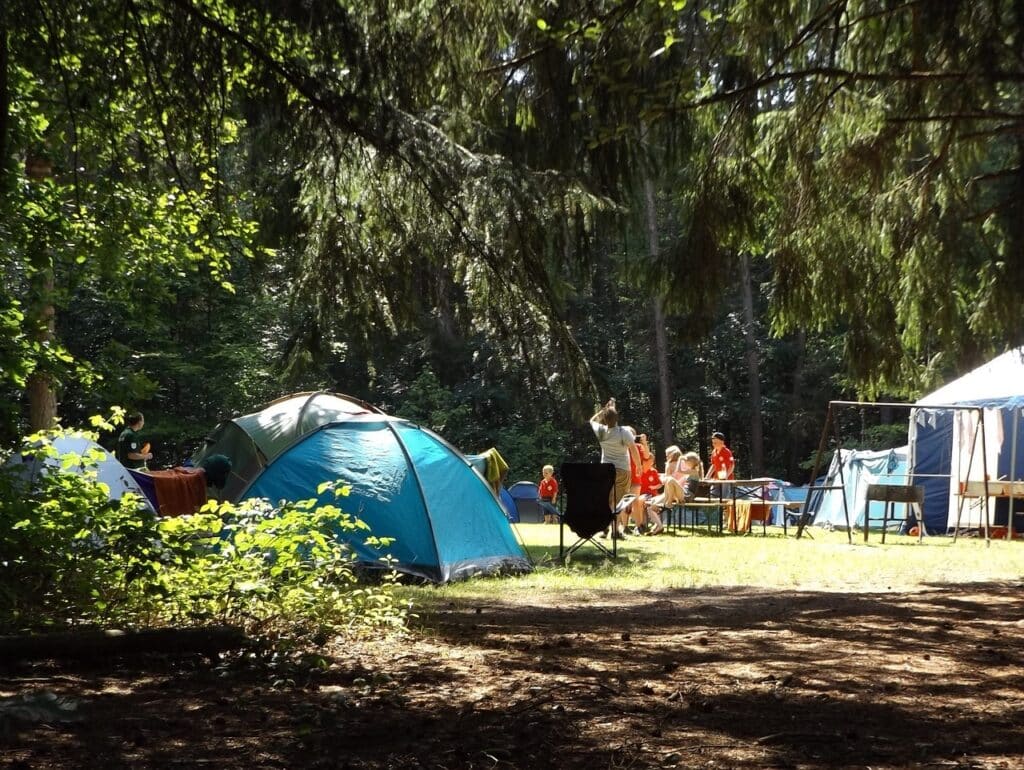No products in the cart.
Fun Facts
As the fervor for outdoor escapades escalates
 As the fervor for outdoor escapades escalates, the beloved pastime of camping endures an onslaught of dilemmas that threaten its allure and the natural environment. Among the most pressing quandaries, the overwhelming congestion of campsites and the escalating detrimental effects on Mother Nature sit at the forefront.
As the fervor for outdoor escapades escalates, the beloved pastime of camping endures an onslaught of dilemmas that threaten its allure and the natural environment. Among the most pressing quandaries, the overwhelming congestion of campsites and the escalating detrimental effects on Mother Nature sit at the forefront.
Venture to any popular camping site during the throbbing heart of the peak season, and the chances are you’ll face a glaring reality – an unnerving congestion, akin to a bustling city during rush hour. Thousands of Americans, fueled by a deep-seated yearning for exploration and a respite from the digital world, are thronging the great outdoors. Tents and RVs sprawl out as far as the eye can see, transforming tranquil forests into bustling communities echoing with laughter, conversation, and the crackling of campfires.
Yet, as alluring as this camaraderie may appear, it births an ominous problem: the dwindling availability of camping spots. Those hoping to pitch their tents and light their fires in the embrace of nature are increasingly finding themselves faced with the stern sign of “Campground Full.” The sheer influx of outdoor enthusiasts besieging these coveted spots, especially during the sun-drenched summer months, leaves many facing disappointment. Long-established fans of the outdoor escape, and newcomers lured by the newfound camping craze alike, grapple with this predicament.
This rampant popularity, though a testament to a collective urge for exploration and solace, also kindles an often overlooked, yet troubling, consequence – an escalating impact on the environment. A throng of campers descending upon the untouched wilderness teems with the potential for irreversible damage to our natural ecosystems.
An innocent stroll through the campground reveals jarring sights of negligence: snack wrappers left discarded, tin cans rusting, and disposable cutlery languishing on the ground. The remnants of human indulgence mar the beauty of the environment, turning serene campsites into unsightly dumpsites. This discarded detritus, seemingly benign, poses a formidable risk to the environment – polluting the land, contaminating water sources, and menacing the wildlife that call these habitats home.
But the harm to the environment does not end at the mere littering of campgrounds. More unsettling is the casual disregard for local flora and fauna. Encroaching on animal habitats and disturbing the fragile ecological balance, the actions of some campers tread a fine line between harmless exploration and harmful intrusion. The sounds of rowdy campers reverberate through the quietude, shaking animals from their rest and scattering them far from their homes.
The enticement of the wild often drives adventurers to breach boundaries – whether unintentionally or with a blatant disregard for the consequences. An off-trail hike, a campfire in an undesignated spot, or a quick dip in a pristine stream may seem innocent enough. However, these actions encroach upon nature’s sanctum, disrupting ecosystems and leaving behind an indelible human imprint.
As the popularity of camping shows no signs of abating, these issues become more pressing, demanding immediate attention. It is crucial that campers, from the seasoned adventurer to the urban dweller escaping the concrete jungle, develop a heightened awareness of their impact on the environment. For if these challenges remain unaddressed, the very essence of camping — the retreat into nature’s solitude — risks falling into oblivion.
The situation begs for an infusion of responsibility and respect into the camping ethos, ensuring that each camper not only enjoys their outdoor adventure but also leaves behind minimal footprints. This doesn’t merely involve obeying park rules and cleaning up after oneself, but understanding and respecting the symbiotic relationship between humans and nature.



